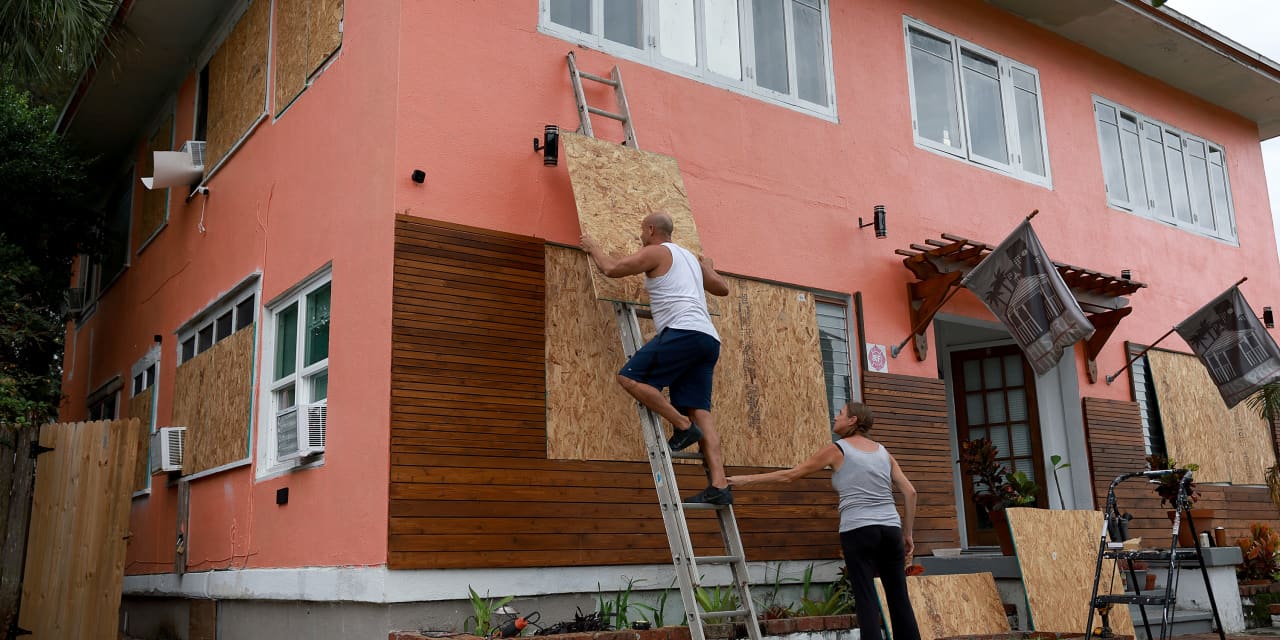Idalia has weakened to a tropical storm as it moves into South Carolina and North Carolina on Thursday, after making landfall in Florida as a major hurricane on Wednesday.
More than 300,000 customers were without power in Florida, Georgia, South Carolina and North Carolina as of early Thursday, according to website PowerOutage.us. The National Hurricane Center warned early on Thursday that there were widespread areas of life-threatening flash flooding in southeastern North Carolina.
Preliminary estimates before Idalia made landfall implied average insured losses of around $9.4 billion, according to analysts at
UBS,
citing preliminary estimates from RMS, a catastrophe risk modeling firm under
Moody’s.
It said that should be largely contained within the insurance sector’s expected catastrophe losses for the quarter.
Insurance broker BMS Group said it estimated that industry insured losses would be between $3 billion and $6 billion, and that it was now likely to be at the lower end of that range. “This is not the devastating event that was feared 24 hours ago,” it said.
Idalia made landfall at a much more sparsely populated region than Hurricane Ian last year, which suggests there will be significantly lower losses than the $112 billion in damage caused by that storm.
Insurance stocks were little changed in the premarket on Tuesday.
Tampa International Airport in Florida said it would resume full operations on Thursday, having avoided any serious damage during the storm.
Air travel disruption also appeared to be easing early Thursday, after close to 5,000 flights were delayed and 1,100 canceled Wednesday, according to data from flight-tracker FlightAware. As of 6.30 a.m. Eastern time, 153 flights within, into, or out of the U.S. had been canceled. The major U.S. airlines had all canceled less than 2% of their flights.
Southwest Airlines
(ticker: LUV) and
United Airlines
(UAL) stocks were both moving up 0.5% in the premarket on Thursday, recouping losses from the previous day.
Delta Air Lines
(DAL) shares were flat.
Write to Adam Clark at [email protected]
Read the full article here





